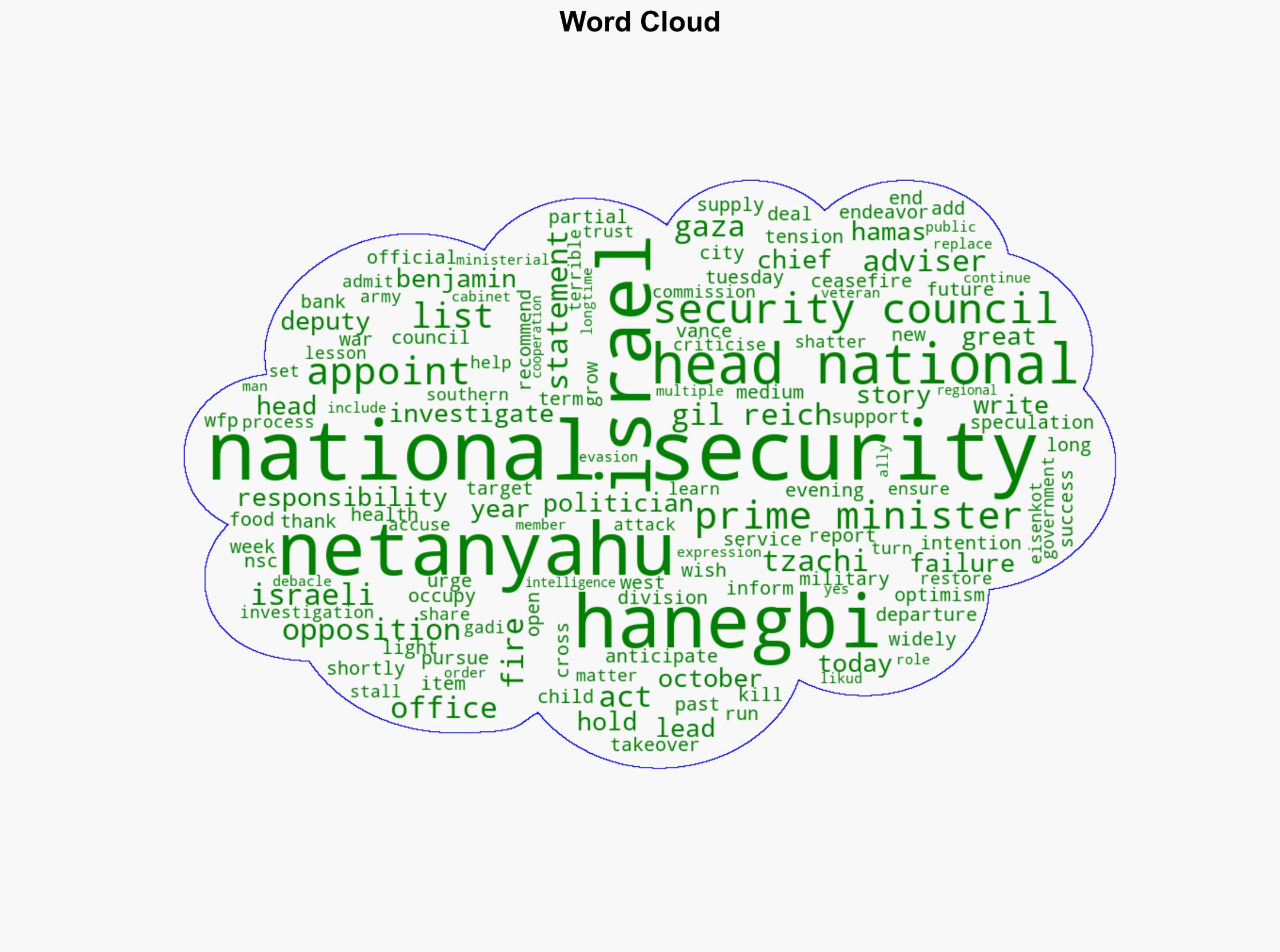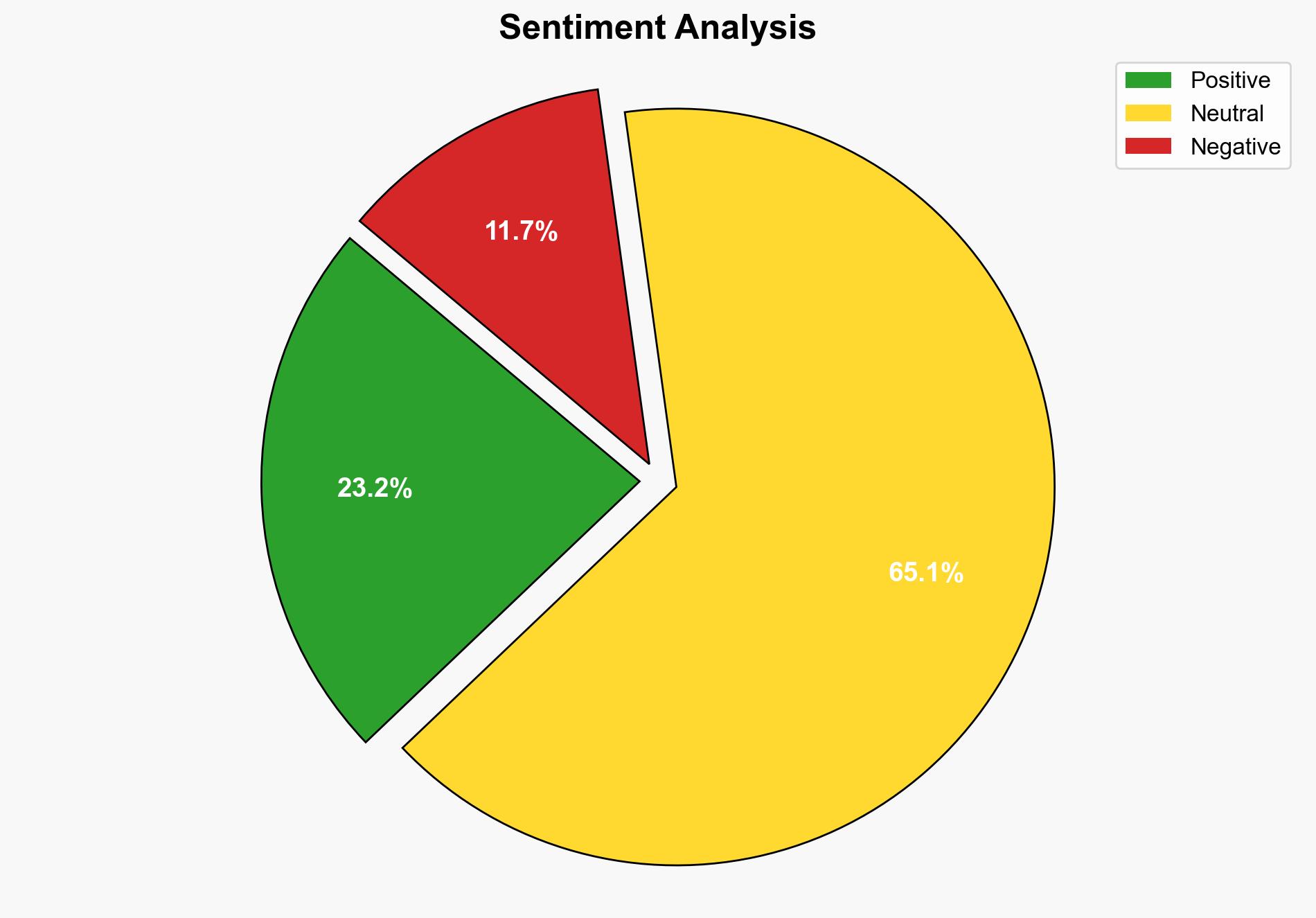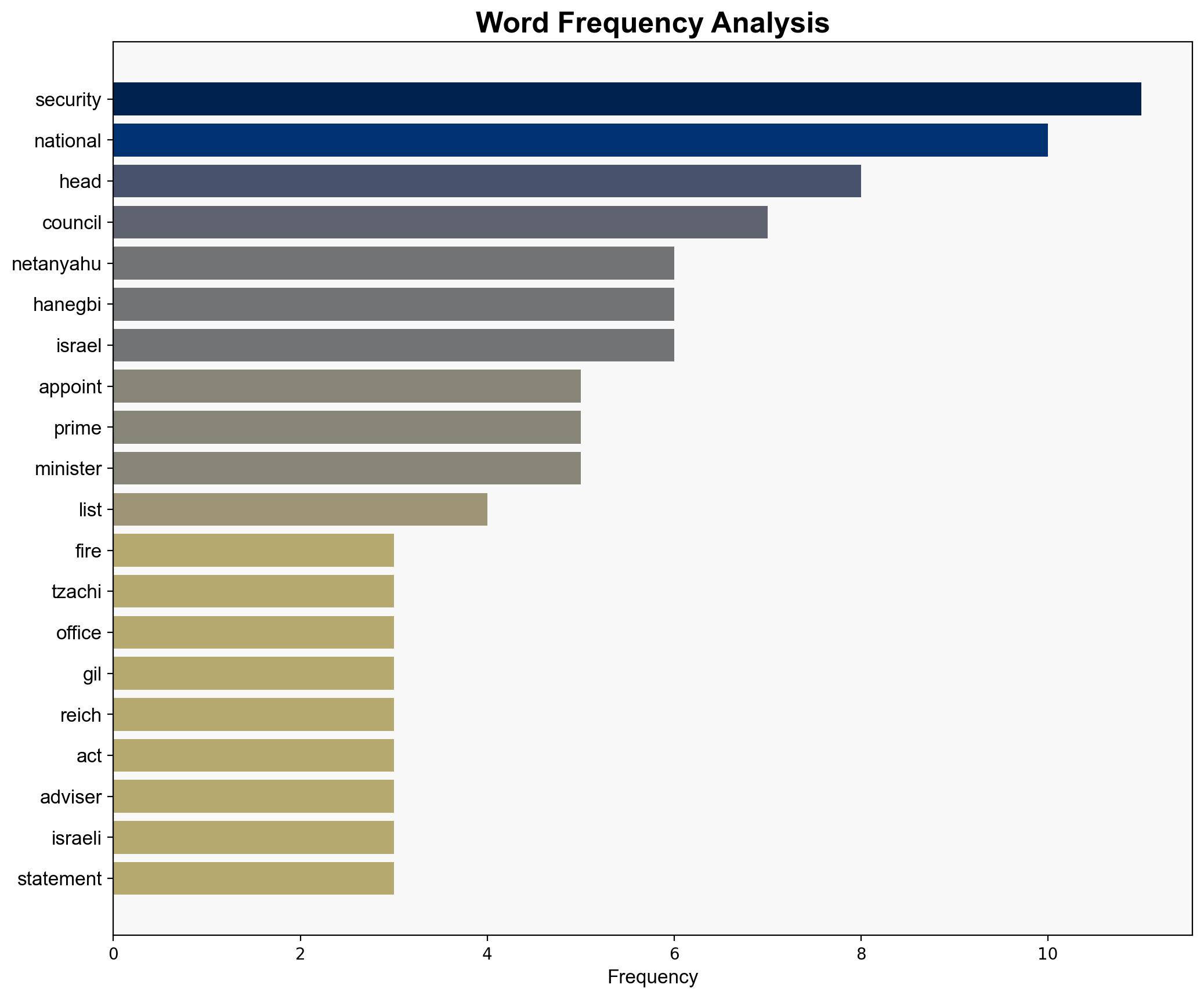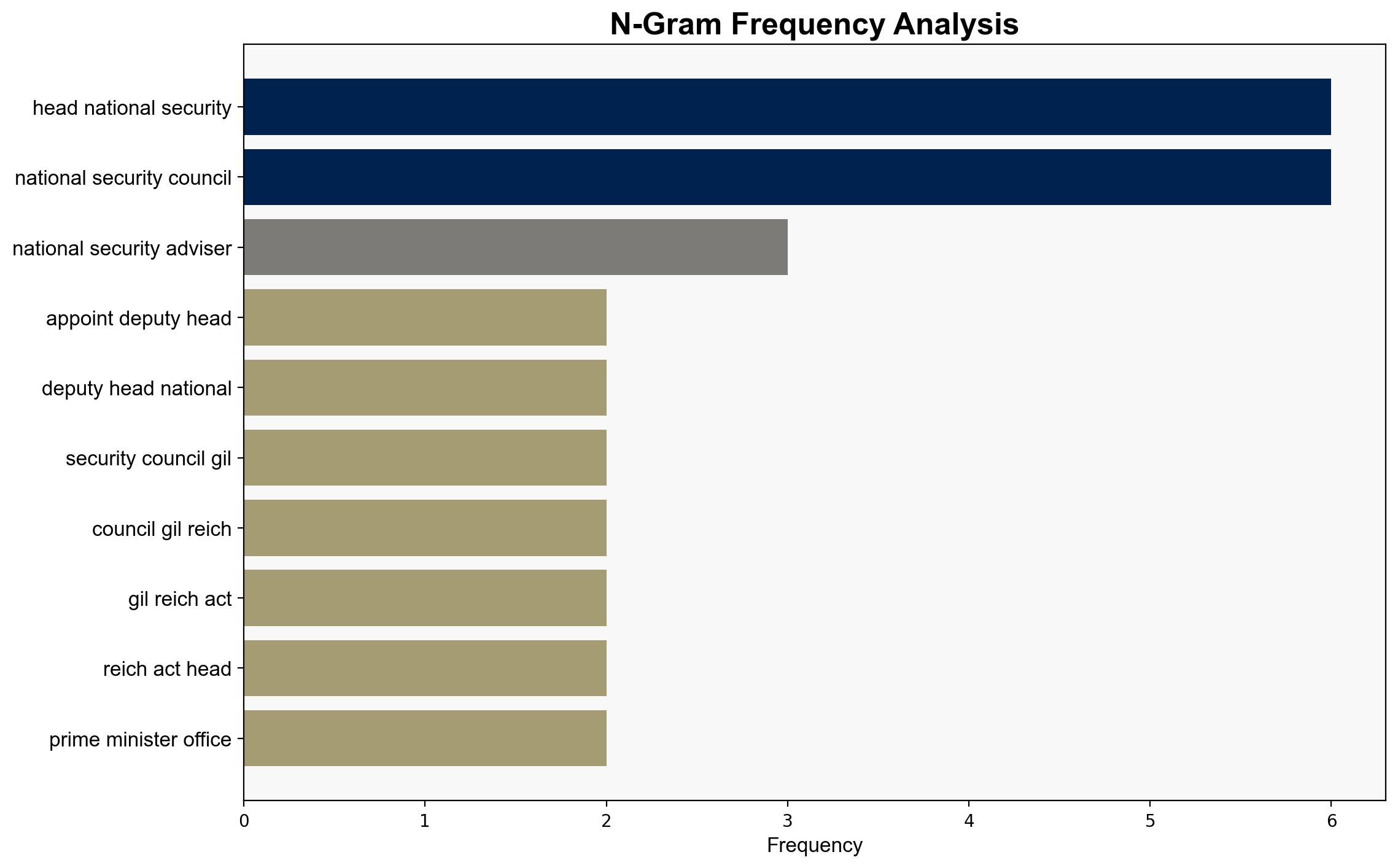Israels Netanyahu fires national security chief Tzachi Hanegbi – Al Jazeera English
Published on: 2025-10-21
Intelligence Report: Israels Netanyahu fires national security chief Tzachi Hanegbi – Al Jazeera English
1. BLUF (Bottom Line Up Front)
The most supported hypothesis is that Tzachi Hanegbi’s dismissal is primarily due to internal political maneuvering within Israel’s government, exacerbated by his opposition to certain military strategies in Gaza. Confidence level: Moderate. It is recommended to closely monitor shifts in Israel’s national security strategies and political alliances, as these could impact regional stability.
2. Competing Hypotheses
1. **Political Maneuvering Hypothesis**: Hanegbi was dismissed due to internal political dynamics, including his opposition to a military takeover of Gaza and his call for an investigation into the October attacks. This aligns with reports of tensions and divisions within the Israeli government.
2. **Operational Inefficiency Hypothesis**: Hanegbi’s dismissal was due to perceived failures in his role, particularly regarding the handling of security threats and the October attacks. This hypothesis is supported by the government’s decision to investigate the failures and the criticism from opposition figures.
Using ACH 2.0, the Political Maneuvering Hypothesis is better supported due to the explicit mention of internal tensions and Hanegbi’s opposition to certain policies, which are consistent with the patterns of political reshuffling in response to dissent.
3. Key Assumptions and Red Flags
– **Assumptions**: The analysis assumes that media reports accurately reflect internal government dynamics and that Hanegbi’s opposition to military strategies was a significant factor in his dismissal.
– **Red Flags**: The lack of detailed information on the specific reasons for Hanegbi’s dismissal and potential bias in media reporting could skew interpretations.
– **Blind Spots**: The potential influence of external actors or pressures on Netanyahu’s decision is not fully explored.
4. Implications and Strategic Risks
– **Political Instability**: Continued reshuffling within Israel’s national security leadership could lead to policy inconsistencies and weakened strategic coherence.
– **Geopolitical Tensions**: Changes in Israel’s approach to Gaza could escalate tensions with Hamas and affect broader regional dynamics.
– **Psychological Impact**: Public perception of government effectiveness may be undermined, affecting domestic support for current leadership.
5. Recommendations and Outlook
- Monitor developments in Israel’s national security policies, particularly regarding Gaza, to anticipate potential shifts in regional stability.
- Engage in diplomatic dialogues with Israeli counterparts to understand the implications of leadership changes.
- Scenario Projections:
- Best Case: Stabilization of internal dynamics leads to coherent security strategies and improved regional relations.
- Worst Case: Escalation of internal political conflicts results in policy paralysis and increased regional tensions.
- Most Likely: Gradual adaptation to new leadership with intermittent policy adjustments.
6. Key Individuals and Entities
– Benjamin Netanyahu
– Tzachi Hanegbi
– Gil Reich
– Gadi Eisenkot
7. Thematic Tags
national security threats, political dynamics, regional stability, internal government tensions




